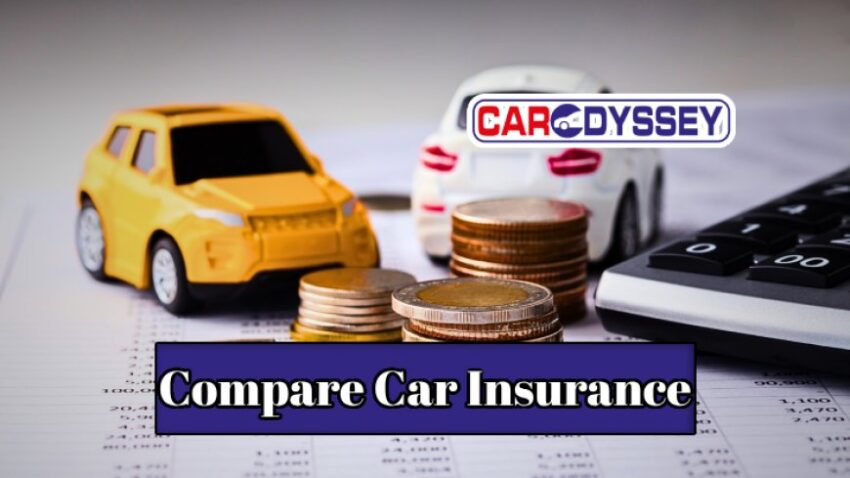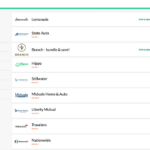Understanding the Importance of Car Insurance
When it comes to driving, having car insurance is not just a recommendation; it’s a legal requirement in many places. Car insurance helps protect you financially in the event of an accident or theft. It can cover a variety of situations, including damages to your vehicle, injuries you might cause to others, or damage to their property.
Many drivers often overlook its potential benefits. By taking the time to compare car insurance policies, you can identify potential savings and find coverage that suits your needs. Engaging in a thorough comparison helps you understand the nuances of different policies, ensuring that you’re well-informed before making a decision.
Moreover, each insurance company has its own pricing model and risk assessment criteria, so comparing them can lead to significant savings. A single decision can lead you to offer extensive coverage or trap you in a policy that fails to meet your needs.
How to Start Your Car Insurance Comparison
So, where do you begin? When you want to car insurance compare, here are some essential steps to follow:
- List Your Needs: Write down what you need from your car insurance. For instance, do you require comprehensive coverage, liability insurance, or uninsured motorist protection? A list will clarify your priorities.
- Gather Information: Compile data on your vehicle, including its make, model, year, and safety features. Also, consider your driving history, as that can affect your premiums.
- Obtain Quotes: Reach out to multiple insurance companies to get quotes. You can do this online, over the phone, or through an insurance agent.
- Check Discounts: Many providers offer discounts for safe driving, bundling policies, or being a member of certain organizations. Make sure to ask about these opportunities.
General Types of Car Insurance Coverage
Before you start comparing, you need to understand the different types of car insurance coverage available. Here’s a brief overview:
- Liability Insurance: This is mandatory in most states. It helps cover the costs of injuries and damages you cause to another party in an accident.
- Collision Coverage: This type of insurance pays for damage to your car after an accident, regardless of who is at fault.
- Comprehensive Coverage: This goes beyond collisions and covers damages from unforeseen events, such as theft, vandalism, or natural disasters.
- Personal Injury Protection: This covers medical expenses and, in some cases, lost wages if you or your passengers are injured in an accident.
- Uninsured/Underinsured Motorist Coverage: This protection is crucial if you get into an accident with someone who lacks adequate insurance.
Using Online Tools Effectively
The internet has made it easier than ever to car insurance compare. There are many online comparison tools available that allow you to view multiple policies at a glance. Here are some tips for using these tools effectively:
- Input Accurate Data: Ensure you enter accurate information about your vehicle and driving history to get precise quotes.
- Look for User Reviews: Pay attention to the experiences of other users with different insurance providers by reading reviews. This can give you insights into the company’s customer service and claims process.
- Visit Insurance Company Websites: Even if you’re using a comparison tool, it’s a good idea to visit the actual insurance company’s website for details. Here you’ll find in-depth information about coverage options and customer support.
- Endorsements and Add-Ons: Sometimes, base policies have gaps. Ensure you’re clear on optional coverages that could benefit you.
Analyzing the Quotes You Receive
Once you have the quotes in hand, the next step is analysis. Comparing apples to apples can be tricky, but it’s crucial. Here’s how to do it effectively:
- Coverage Limits: Make sure you’re comparing similar coverage limits. A lower premium might seem appealing, but if it doesn’t cover you adequately, it might not be worth it.
- Deductibles: Consider the deductibles offered in each policy. A lower deductible means you’ll pay less upfront in the event of a claim, but typically, it leads to a higher premium.
- Exclusions: Understand what’s not covered in each policy. Some areas may have unusual exclusions that could leave you vulnerable.
- Customer Support: Evaluate the customer service ratings of each company. This will prove invaluable during the claims process.
Making an Informed Decision
Now that you have the necessary information, it’s time to make an informed decision. Here are some final tips:
- Consult with Professionals: If you’re having a hard time choosing, don’t hesitate to consult with an insurance agent or advisor. They can provide insights that you might not have considered.
- Consider Your Budget: While it’s crucial to have adequate coverage, you also need to remain within your budget. Look for a balance between cost and coverage.
- Review Annually: Your needs may change over time, so it’s wise to review your policy each year to ensure it still meets your requirements and that you’re not overpaying.
- Avoid Lapses: Ensure there’s no lapse in coverage as it could lead to penalties and higher future premiums.
If you’re looking for savvy tips and tricks about saving money and optimizing your insurance experience, [check out this resource](https://en.tauapa.com/) for more insights!
Frequently Asked Questions About Car Insurance Comparison
What is the best way to compare car insurance quotes?
The best way to compare car insurance quotes is by using online comparison tools, obtaining quotes from multiple providers, and reviewing coverage options, limits, and costs side by side.
How often should I compare car insurance rates?
It’s advisable to compare car insurance rates at least once a year or whenever there is a significant life change, such as moving, changing your vehicle, or experiencing a shift in your driving habits.
Can I negotiate my car insurance premium?
Yes, sometimes you can negotiate your premium. Present any existing discounts you might qualify for, and don’t hesitate to mention competitors’ offers if they provide a better rate.
Are cheaper policies always better?
No, cheaper policies aren’t always better. It’s essential to balance cost with adequate coverage. A lower premium might come with less protection, leaving you vulnerable in an accident.
What factors can affect my car insurance premiums?
Several factors can affect your premiums, including your driving history, age, location, type of car, and the coverage limits you choose.




